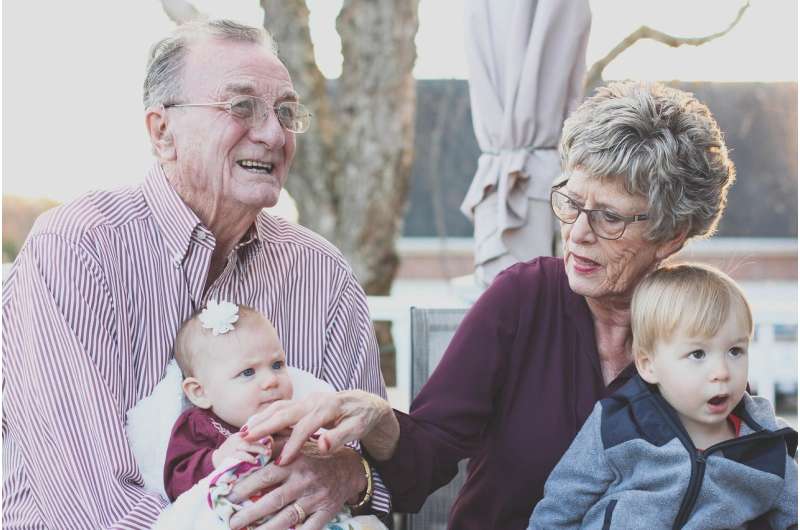The influence of early family formations on support in older age

Fewer children, distant relatives or friends, and an increasing plurality of family models are factors that impact on the availability of support and care in old age. Tiziana Nazio, a researcher at the WZB Berlin Social Science Center, has explored how early family formation events relate to the emotional and practical support that people give and receive in older age. Her results show that women still bear the brunt of the burden of care. What people do at an early stage of life in terms of family building is a predictor of the size and composition of the emotional support networks they will have later in life. However, irrespective of the circumstances of older age, the number of children and the presence of a partner are the factors that ultimately strongly predict whether or not someone receives practical support and personal care.
Family formation early in life can influence the availability of kin later on by establishing ties with spouses, children, and in-laws. It may also affect the opportunity to establish long-term relationships and networks that can act as substitutes for kin in old age. With SHARE survey data from five countries for the birth cohorts 1927-1966, Tiziana Nazio, Marie Skłodowska-Curie research fellow at the WZB Berlin Social Science Center, mapped typical family formation patterns in early adulthood and investigated whether they come to bear on social support given and received in later life.
Early family formation patterns were predictive of the size of old-age individuals' emotional support networks independent of the current family circumstance and number of children. Emotional support networks often include partners and children (in around half of the cases one or more). All else being equal, childless individuals and couples who had only one child tended to report smaller networks. Further, family disruption resulted in smaller networks, although this was only the case in the more traditional Czech Republic and Italy. Re-establishing a family, however, seemed to make up for the lost network—multiple unions, where union dissolution was soon followed by stable re-partnering, did not result in a smaller network size anywhere except in the Czech Republic.
An important point is that although family trajectories may shape the size of emotional support networks, they do not change the probability of receiving (or giving) practical help or personal care. The strongest predictor of concrete instances of this other type of support is the number of living children and the presence of a partner. Early family trajectories may only play an indirect role, in that having larger networks also contributes to making care exchanges more likely.
The distribution of caregiving that couples provide to parents, parents-in-law, and to children or grandchildren reveals the highly gendered nature of care, with women doing the larger share. But do men shift their care responsibilities toward older generations onto their spouses? Parental care seems more likely to be shifted across siblings than onto partners, but more onto sisters than brothers, especially when caregiving becomes intense.
Tiziana Nazio pointed out that the number of informal caregivers is expected to decrease in the future with a growing mismatch between care demands and the capacity to respond with informal provision by families and close support networks. "An increasing proportion of elderly adults, especially women, will be in a position to provide care to both elderly parents and grandchildren at the same time, during longer employment careers," she says. Women's careers and pension contributions are particularly at risk from informal care provision, grandparenting, as well as elderly care, in those countries where public service provision is lower.
What could help to bridge this gap? Measures could include strengthening service provision, offering leave schemes and flexible working arrangements for informal caregivers independently from their relation to the caretaker, their living arrangements, and the makeup of their household. These measures might encourage men to take on care responsibilities and help reduce current gender disparities. Creating the possibility of counting periods of care as contributing toward social security might instead reduce the gendered risk of poverty in old age, especially the gender pension gap, due to women's higher risk of interrupted careers for assuming caretaking responsibilities.
More information: Matteo Luppi, Tiziana Nazio. Does Gender Top Family Ties? Within-Couple and between-Sibling Sharing of Elderly Care European Sociological Review (2019). DOI: 10.1093/esr/jcz035
Provided by WZB Berlin Social Science Center


















